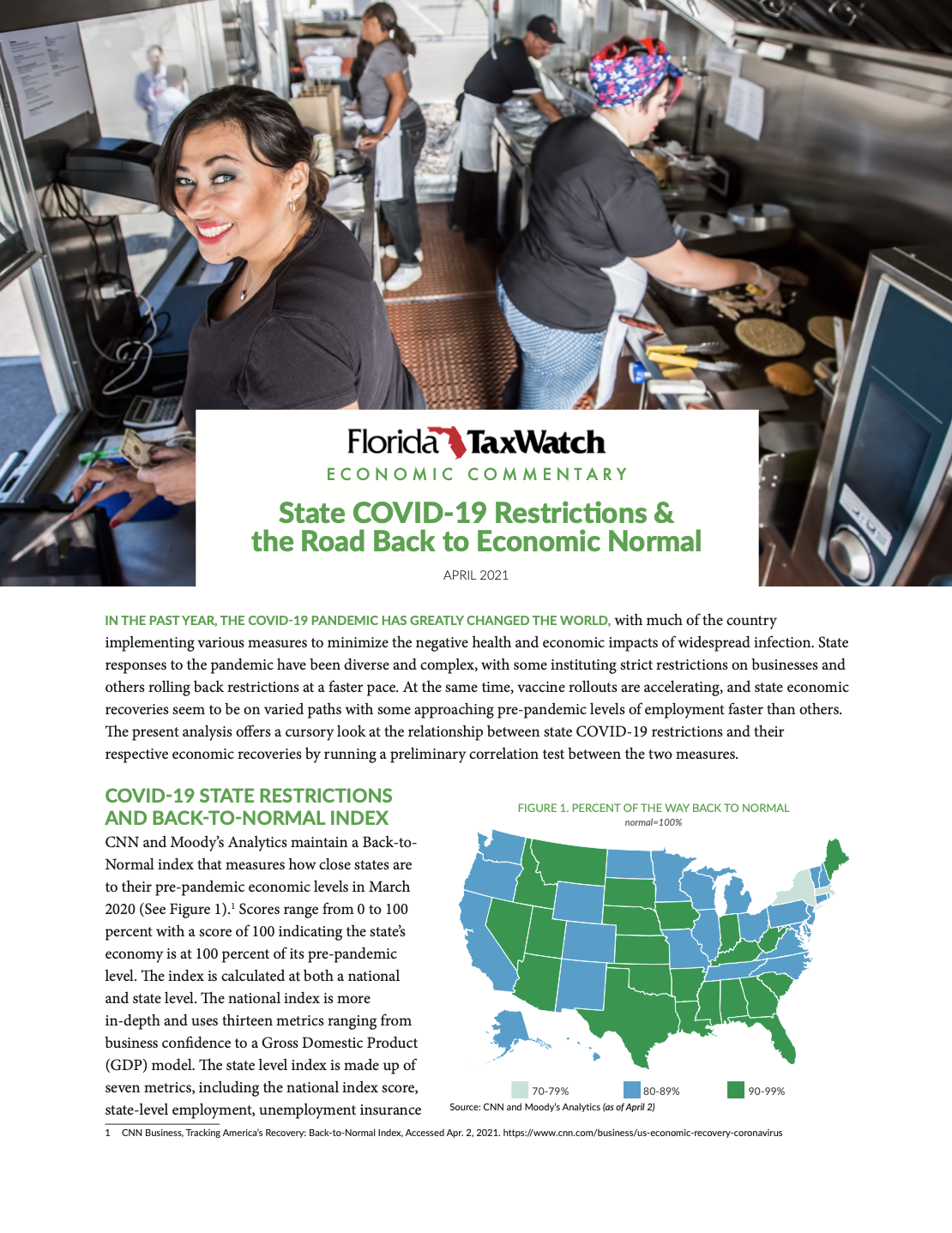State COVID-19 Restrictions & the Road Back to Economic Normal

In the past year, the COVID-19 pandemic has greatly changed the world, with much of the country implementing various measures to minimize the negative health and economic impacts of widespread infection. State responses to the pandemic have been diverse and complex, with some instituting strict restrictions on businesses and others rolling back restrictions at a faster pace. At the same time, vaccine rollouts are accelerating, and state economic recoveries seem to be on varied paths with some approaching pre-pandemic levels of employment faster than others.
The most basic way to study the potential relationship between a state’s level of COVID-19 restrictions and economic recovery is through a simple correlation test. This test compares the two indices and allows for general inference as to whether there is a positive or negative correlation between the two measures. The correlation test shows a moderately positive relationship with a correlation coefficient of 0.65. This positive correlation means states with fewer COVID-19 restrictions are typically found to have stronger economic recoveries.
Overall the data suggest that states implementing stricter COVID-19 guidelines are recovering at slower speeds compared to states that have lifted restrictions sooner. Even though the correlational results should be viewed with a degree of caution, it is worth understanding this trend in the data. The effect of restrictions on employment outcomes, especially among small businesses, appears to be driving the relationship in the results. For both measures—both the Back-to-Normal index and the state restriction level—employment is heavily weighted. As such, state measures that negatively impact local employment are likely to hurt economic recovery efforts.
Across the U.S., states will continue to grapple with differing economic recoveries even as the pace of vaccine administration quickens. Cross-country and cross-state research studies seem to suggest that although stay-at-home orders, lockdowns, and other restrictions can minimize the transmission of the virus and reduce health care utilization, these measures come with economic and societal costs that may hamper economic recoveries. Tradeoffs between restrictions and recovery exist and warrant more evidence-based research to understand their complex relationship. The emergence of more contagious virus strains coupled with an imprecise timeline for widespread herd immunity means the “health and wealth” tradeoffs debate will continue for the foreseeable future. For Florida specifically, the decision to maintain relatively fewer COVID-19 restrictions throughout the course of the pandemic has positioned the state in a stronger economic recovery relative to other states.